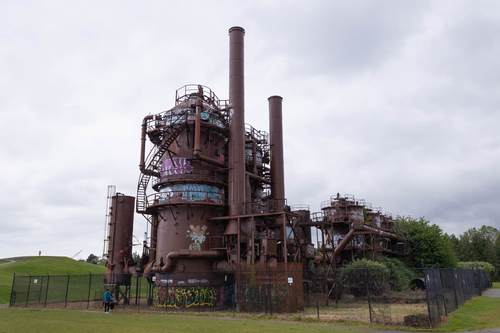
About a third of convenience stores are now giving a discount to consumers who pay for gas with cash, according to the results of a retailer survey issued this week
Nearly 30% of convenience stores participating in a recent survey by the National Association of Convenience Stores said they were offering consumers discounts for paying in cash, according to the trade group’s website.
Convenience stores sell an estimated 80% of the fuel purchased in the U.S., according to the organization. It says high gas prices hurt, rather than help, its members, which include 1,300 retailers and 1,600 suppliers to stores from more than 50 countries.
“Convenience retailers say they are looking to reduce expenses, chief among them credit card fees, which average more than 10 cents per gallon, and pass along savings to price-conscious customers,” NACS said in the June 27 web post regarding the survey results.
The trade group has long been critical of the swipe fees charged by Visa and Mastercard to process transactions, saying it hurts both consumers and its members.
According to NACS, swipe fees cost the average family $700 a year and help fuel inflation. A bipartisan group of lawmakers in April called on Visa and Mastercard to cancel scheduled fee increases. The card companies countered that the increases were needed to cover the cost of fighting fraud and noted they had reduced some fees as well.
“While sales and traffic have slowed as gas prices climbed, retailers continue to seek out innovative ways to provide value at the pump and inside the store to help their customers extend their paychecks and weather this period of inflated costs,” Jeff Lenard, NACS vice president of strategic industry initiatives, said in a press release.
Consumers are facing record-high levels of inflation, in tandem with soaring gas prices, caused in part by sanctions imposed against Russia over its invasion of Ukraine. The consumer price index, a measure of inflation, jumped 8.6% in May, over the year-earlier period, in the biggest jump since 1981, the media outlet CNBC reported.
A majority of the NACS members surveyed (59%) said high gas prices have hurt traffic in their stores over the past three months and its sales of goods in the stores that drive profits, according to the association. About half of all NACS survey participants (49%) said that customers that come inside the store to buy goods are spending less on those items than they did three months ago when gas prices were $1.50 a gallon lower.
The association doesn’t track whether its members provide fuel, but it believes about 80% do provide it, based on the average across convenience stores, a NACS spokesman said.
GasBuddy, an online information service that tracks gas prices for consumers and offers payment cards, isn't sure what impact the cash discounts are having on the market, said Patrick De Haan, who’s head of the firm’s petroleum analysis, in an email.
It’s tough to gauge how widespread the discounting is, he said. “It's not yet what I'd say is the norm at all,” he said. The “impact is also hard to gauge.”
Cash discounts are widely available at Exxon and Mobil gas stations, according to Julie L. King, a spokesperson for the Irving, Texas-based oil giant Exxon Mobil, which doesn’t own or operate any U.S. retail fuel stations.
“Service stations are individually owned and price their fuel based on local market competition and other business factors,” King wrote in an email.
Exxon Mobil’s San Ramon, California-based rival Chevron, which also owns the Texaco brand, is in the same situation. “The vast majority of Chevron and Texaco stations are independently owned and operated and set prices accordingly,” Chevron spokeswoman Deena McMullen said in an email, adding that policies at corporate owned stations vary widely.
Though gasoline prices have come down from their national average record high of $5 per gallon, convenience store operators see more bad news looming on the horizon as the Fourth of July holiday approaches.
More than half (53%) of NACS respondents expect summer sales, traditionally a busy time, will fall this year compared to last year, according to the trade association survey.
About the only good news for retailers is that just over a third of consumers aren’t blaming them for the rise in gas prices. At least, that’s the conclusion of the NACS survey. The trade group said 53 of its retailer member companies representing 3,023 stores participated in the survey.
While 37% of retailers “say consumers understand that higher gas prices are caused by factors outside of the retailers’ control,” about an equal number (35%) “say that consumers blame retailers for higher prices,” according to the NACS post.
By Jonathan Berr on June 29, 2022
Original link
